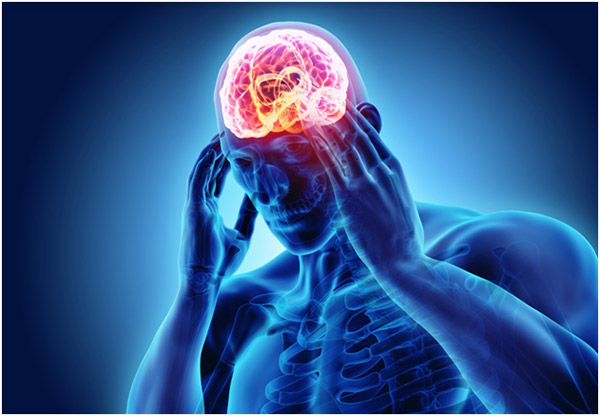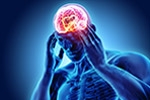
In March we raise awareness in our community about brain injuries. Brain injury awareness and prevention are essential for human life. With 3.6 million people sustaining brain injuries in the US each year, this is an important health initiative.1
One of the most common causes of disability are head injuries.2 Suffering a blow to the head can be a traumatic experience. An examination by a doctor after a severe impact on the head is crucial in diagnosing a concussion or brain injury.
The doctor may order a CT Scan if you have suffered a significant head injury. CT scans find structural problems such as bone fractures or other injuries that require neurosurgical intervention. Signs of a severe head injury are:
- Changes in mental state or alertness
- Horrible headache that starts suddenly or rapidly worsens
- Repeated nausea and vomiting
- Trouble seeing, severe dizziness, weakness, or numbness of your face, arm, or leg
- Slurred speech
- Behavior changes
- Blood or clear fluid draining from the ears or nose
- Deep cut or laceration on the scalp
- Seizures or convulsions
Over the past two decades, CT scans have undergone many technological advancements to become one of the most widely used imaging tools today.3 CT scans are more detailed than general X-rays and can create a three-dimensional view of bone, soft tissue, and blood vessels in the head.
A CT scan cannot diagnose a concussion. Concussions are an injury to the brain cells and microscopic cellular injuries. Concussions are not visible on many imaging tests, which is why x-rays, CT scans, and MRI's are usually normal despite injury.
That said, the lack of structural findings can assist the provider in the diagnosis of a mild head injury or a traumatic brain injury.. CT scans can anticipate further complications, such as brain bleeding, skull fracture, and brain tissue damage.
Always see a doctor if you or a loved one has suffered a blow to the head. Seek emergency medical care if there are signs of a traumatic brain injury following an injury to the head.
Our mission at Houston MRI ® & Diagnostic Imaging is to provide patients and physicians affordable medical diagnostic imaging in a warm and patient-friendly environment. It is our goal to make the medical imaging procedure as pleasant as possible. Our promise to our communities is "hospital quality imaging without the hospital costs" with efficient service to both our patients and physicians.
1. https://www.cdc.gov/traumaticbraininjury/pdf/blue_book.pdf
2. https://www.cdc.gov/traumaticbraininjury/pubs/tbi_report_to_congress.html



